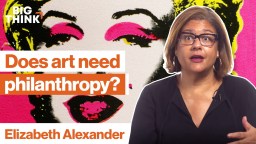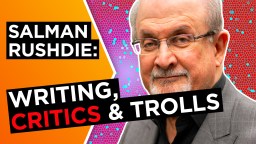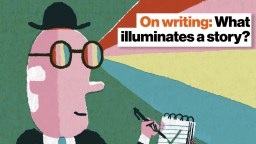James Patterson: I think outlines are hugely important for almost anything you do – probably not everything but almost everything. Certainly writing novels that are nonfiction; I think writing speeches, same thing writing essays, writing letters. And it always comes down to what's your big idea? What's the point of the thing? What's the focus of it? And then what are the points the many points that you want to make? And then what's an order that makes sense?
And you start putting down points you might have a hundred points and you might decide here are the ten that I'm going to concentrate that really make this a powerful story. And I just think pretty much anything you do it's going to be better if you outline it first, most anything. And people don't do it as much now because that first draft stuff. I think first drafts are insulting for the most part. And you're always getting them and they're like semi incoherent, full of spelling – well, spellcheck fixes that – bad grammar. The whole, you know, you're reading this going like really? Did this person graduate from high school? People do that now. I think a second draft is a good idea, especially if you're doing it to a boss. You're talking to your boss, let your boss see how smart you are not how sloppy you are.
When I'm writing a book I'll do three or four or five versions of the outline. That's it that's the book. I mean you read one of my outlines you've kind of read the book. Now it may change a lot and it will change because certain characters get more interesting than I thought they were going to be, as I'm writing certain chapters I'll go oh I wanted to go another way so I'll make a shift and suddenly things will go in a way that I wasn't originally planning it to be. I almost never the ending and the outline it's almost never the ending. For whatever reason by the time I get there I want to do something different.
I try to get as close to the bone as I can get. What's the core idea? What drives this scene? And I want to do it in a paragraph really because if you start doing chapter 1 and you wrote two pages of outline it's already all over the lot. I mean seriously you can get all that shit in that first chapter? And you can do it in certain kinds of narratives, but not if it's a scene.
And another thing, I think that people do a lot in fiction and nonfiction and so they'll go out and they'll research and then they just dump the research. You can almost feel it. It's supposed to be some scene where it's a romantic scene where someone is going to propose to the other person in Saint Patrick's Cathedral but they've done a lot of research so it's supposed to be a very romantic scene but they dump like three pages of it was built in such and such. Stop! That's not supposed to be in here because it's supposed to be a romantic scene.





